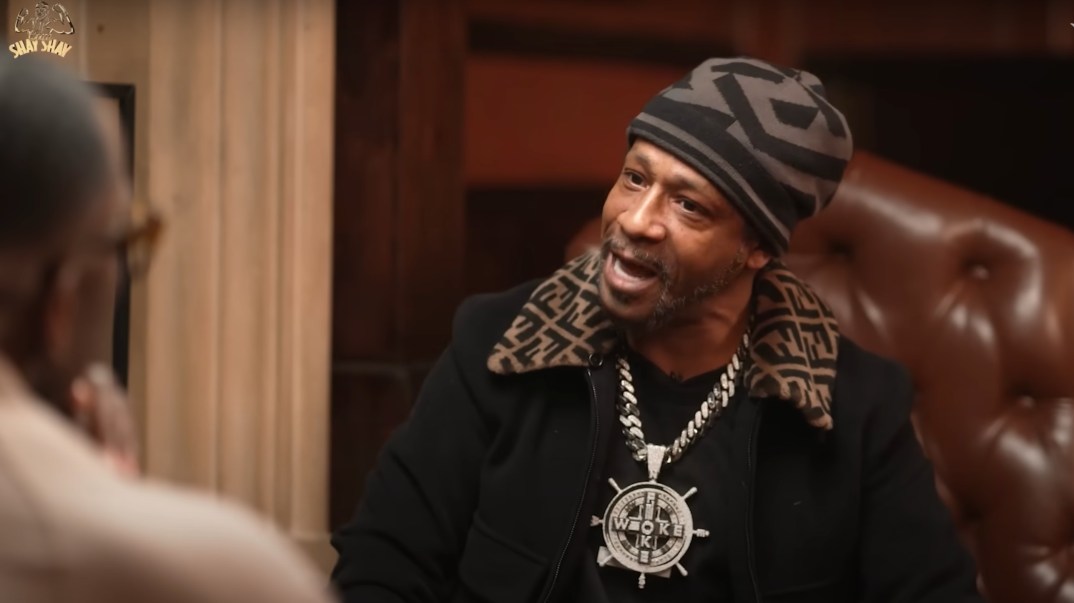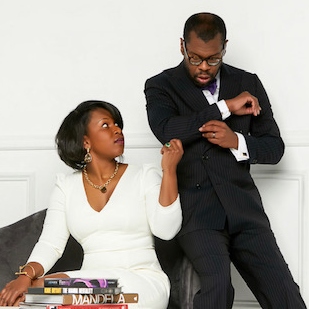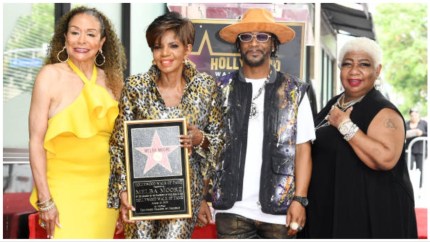Don’t hate the playa, change the game: Did Katt Williams offer a resolution for a new era?
Whether or not you're a fan, Katt Williams has mastered the art of leaning into the discomfort of confrontation to tell your truth.

“Notes on faith” is theGrio’s inspirational, interdenominational series featuring Black thought leaders across faiths.
Amid all the breaking news we have already had to process in 2024, only three days into the new year, we were given a dose of 1990s Black comedy nostalgia we didn’t know we needed during comedian Katt Williams’ appearance on Shannon Sharpe’s “Club Shay Shay” podcast. In the ultimate display of “I’ve got time today,” the almost three-hour conversation felt more like a soliloquy as Micah “Katt” Williams gave his account of experiences with peers on the Black comedy circuit who have at one time or another said his name or erased his work during their interviews.
Given the millions of views amassed in less than 24 hours — and that our social media algorithms are still teeming with response posts, this video is undoubtedly already classified as one of the greatest reads of all time. In fact, as phrased in Isaiah 40:5, it could actually be an “all flesh shall see it together” moment in the entertainment industry.
We know excerpts from this podcast are already being exhaustively shared, analyzed and scrutinized. However, as faith leaders and public theologians, we also see spiritual insights to consider when regarding the implications of this moment. Whether we are fans of Katt Williams or the comedians he mentioned — or agree with the validity of all of his claims — there is a larger picture this conversation offers that can and should be analyzed from a cultural, intellectual and spiritual perspective for years to come.
During a week in which Black public leadership in the upper echelons of society has been scrutinized for their courage, originality, and integrity, there was something potent about Williams’ appearance on the show. Masterfully self-possessed in his storytelling, the Jehovah’s Witness-raised comedian played the game of Black entertainment as if it were chess, and many of us got our entire lives, loving every minute of his seasoned talent and biting wit.
From engaging product placement to his knowledge of the scriptwriting business, to contract construction to the symbolism interwoven in his attire and nonverbal gestures, when it comes to show business, Williams understands the assignment: To maximize the moment in a language the people recognize that does not “grin and bear it.” It talks back to the powers that be.
There was plenty of tea to digest, but for those of us listening closely, he also made a theological claim that gave context to his intentions as a citizen and to what end he uses his mastery. Among the interview’s many quotables, Katt Williams said he has always aspired to be a “friend of God.”
In what ways can we aspire to be friends of God with our entire righteous and ratchet selves, regardless of the context?
As we have learned from numerous spiritual mentors and artistic examples, we are closest to God — even God-like — when we are in our creative spaces and flow. When we seek to befriend God, we are not confined by any realm but can instead shift the atmosphere, using our power regardless of where we are.
We can be most creative when we know our context, the intended audience, and our support system.
Many viewers may dismiss Williams’ now-viral interview as “business as usual,” shrugging it off as an event that will ultimately have no impact on the world. Others may connect this moment to what we have long known or suspected about the inner workings of various industries and may choose to do better, individually or collectively. Some have brought up his own past transgressions, which, while true, don’t necessarily discredit his message, while others question whether his candor was the result of mental illness, inebriation or some other influence.
All jokes, speculation, and tea aside, ultimately, as faith leaders, we agree with Williams when he said, “There is God’s side and the other side.”
Recommended Stories
Some viewers unfamiliar with the comedian’s irreverent style or the African tradition from which he was hewn may interpret Williams as contemptuous. However, for those familiar with Williams’ body of work and/or the tradition from which he speaks, many had church — unorthodox as it may have been. He was “in the spirit,” meaning in the zone, activated, lucid, equipped with insider information and inspiration, speaking his truth to power.
Just like a griot, Katt Williams wielded the oral tradition of “the dozens,” a longstanding tradition we now commonly call “reading” (thanks in large part to our LGBTQ+ folk): observing the landscape, storytelling, citing existing work, and exchanging critiques with sparring partners. Under the guise of comedy, the griot is expected to protect and carry the culture with attunement to time, wit, wordsmithing, and humor. Said to comprise over 20 attributes, the griot is a composite of the comedian, the historian, the rapper, the commentator, the warrior, the praise singer who reminds you of battles won and lost, the preacher, and more. He is your on-demand “truth-teller,” given to hyperbole, colorful speech, and flair. A true griot reminds us of who we are.
Armed with that tradition of creating an experience, Katt Williams gave us a “secular” illustrated sermon of what it looks like to be a free Negro, presumably unbought by the entertainment industry and existing for the culture.
As teenagers in the ‘90s, we were introduced to Katt Williams and many of the comics mentioned in his interview through BET’s “Comic View.” As young people reared in pastors’ households, it was one of the few mature programs we could watch openly during the week. On the other hand, its contemporary, “Def Comedy Jam,” was a showcase we had to sneak to watch. This African-American brand of “blue comedy” was much more explicit, with bits like Bernie Mac’s “I ain’t scared of you mutha…” With his signature voice and hairstyles, Katt Williams caught our attention; he held it because of his storytelling approach to setting up a joke, his analysis of the local culture, and his embodiment of the pimp archetypes in the audacious brand of comedy we came to know growing up.
The hallmark of this 1990s-2000s comedy was a brash, hold-no-prisoners-approach in its delivery, solidified in our childhoods through what some would call “cracking jokes” on each other. These shows prepared us for “crack-backs” — or “Joning,” among other regional terms — about what you were wearing, one’s stinky breath, particular mannerisms, or, if one was ready to fight, “yo’ mama” jokes, readily deployed as we came of age. These battles could commence at any time and place: at the bus stop, on the bus, in homeroom, the lunchroom, or somewhere in the schoolyard. Unequivocally, the best sparring partners were always able to incorporate techniques they saw on “Comic View” or “Def Comedy Jam” and personalize them.
In addition to the great Bernie Mac, D.L. Hughley, and the others who toured as “The Original Kings of Comedy,” Katt Williams hearkened us to that ten-toes-down, confident hyperbole rooted in authentic experiences, laced with allusions cultural insiders assert to ignite conversations and generate a profitable buzz. They knew how to take us on a journey of cracking the code to dominate the dozens.
“I am a friend of God”
Being a friend of God carries the implication of striving for spiritual growth, moral integrity, and a deep sense of purpose guided by faith and devotion to God’s will. It symbolizes a profound connection that transcends religious boundaries and serves as a source of inspiration and guidance for believers on their spiritual journeys. When one is a friend of God, it means that God is for you, so who can really be against you (Romans 8:31)? With the Creator, you have all the support you will ever need.
To be clear: Katt Williams did not “get ready” for this moment. Like any great entertainer, he “stays ready” — so much so that Sharpe said the cameras could have rolled from the time he stepped through the door. As we see the wide range of responses from those Williams called out, only time will tell if his ways were pleasing to God — because when our ways please God, our foes are promised to be at peace with us (Prov 15:7-31).
Nevertheless, for 2024 and beyond, Williams gave a master class on perceiving the moment and walking confidently into it. In a time when we are still dealing with global conflicts in the Congo, Ukraine and Palestine, with rumors of more wars to come, global economic hardships, and an already contentious presidential election cycle, we are also coping with the undermining of free speech and education, and the sabotage of Black leadership in institutions demonstrated through the forced resignation of Claudine Gay. Cumulatively, the seemingly mounting opposition against Black upward mobility can feel overwhelming.
In moments like these, embracing being a friend of God and conducting ourselves accordingly becomes that much more important so that we can get into the mindset of harnessing our maximum creative capacity. In this era of the reveal, let’s hold fast to God’s unchanging hand and say it like we feel it, empowered by the confidence that “If God be for you, WHO can be against you?”

Rev. Dr. Alisha Lola Jones is a faith leader helping people to find their groove in a fast-paced world, as a consultant for various arts and faith organizations and professor of music in contemporary societies at the University of Cambridge in Cambridge, England. She is an award-winning author of Flaming? The Peculiar Theopolitics of Fire and Desire in Black Male Gospel Performance (Oxford University Press). For more information, please visit DrAlisha.com.
Rev. Calvin Taylor Skinner is dedicated to empowering frontline communities in Knoxville, Tenn., and the United Kingdom. He uses Faith and Policy to address energy justice, criminal justice reform, voter education/mobilization, electoral politics, and global affairs. Along with his wife, Rev. Dr. Alisha Lola Jones, they lead InSight Initiative, a consulting firm focusing on capacity building and live events production.
Never miss a beat: Get our daily stories straight to your inbox with theGrio’s newsletter.







